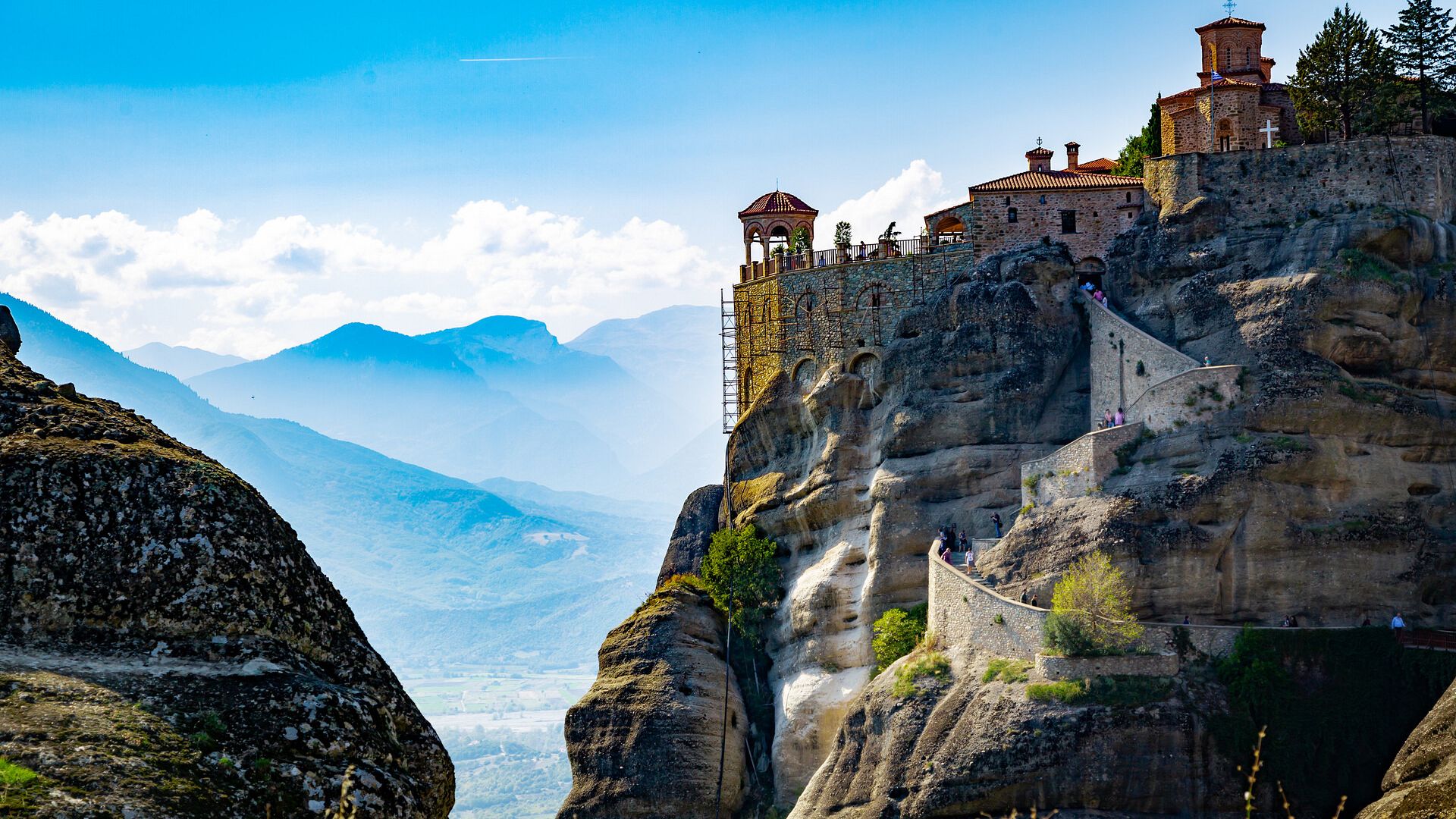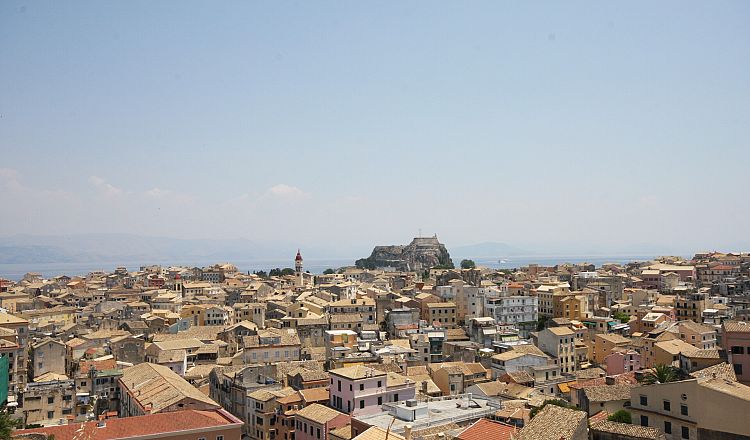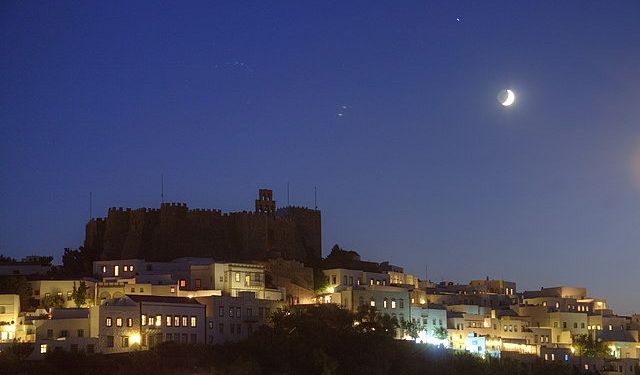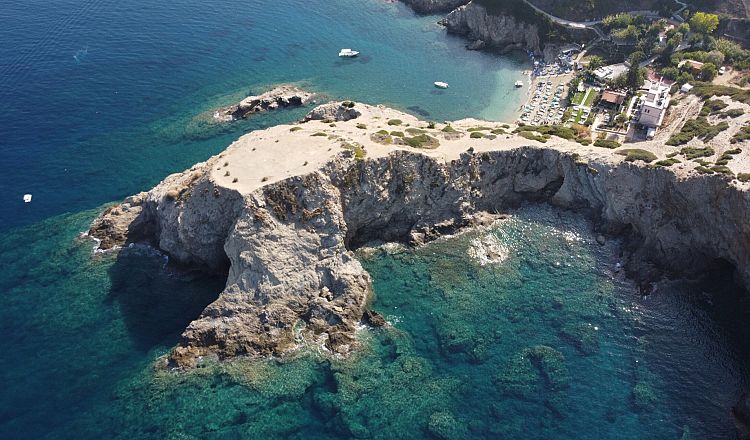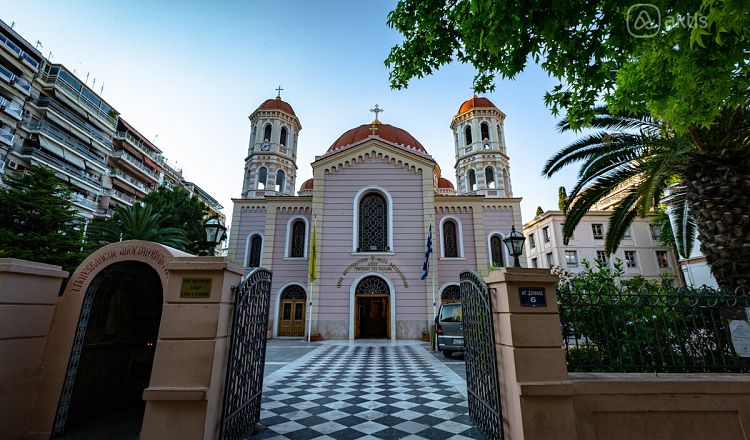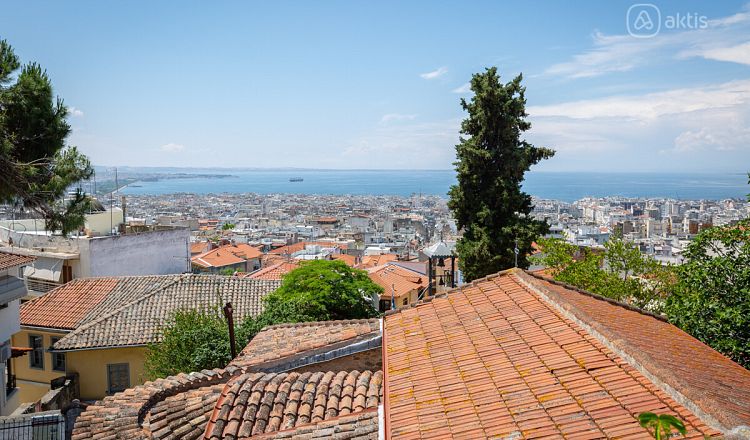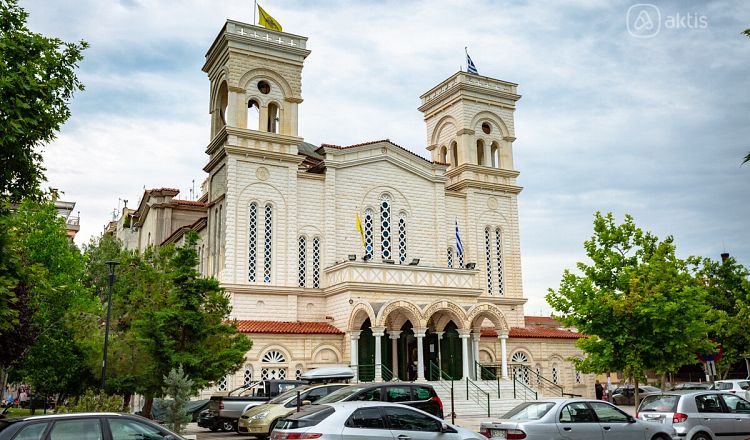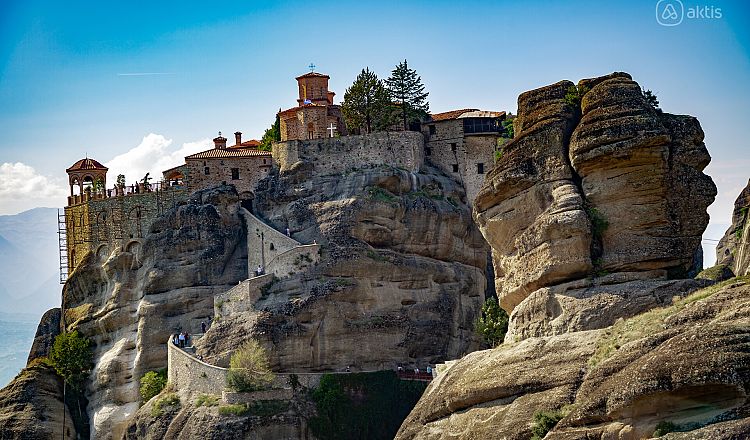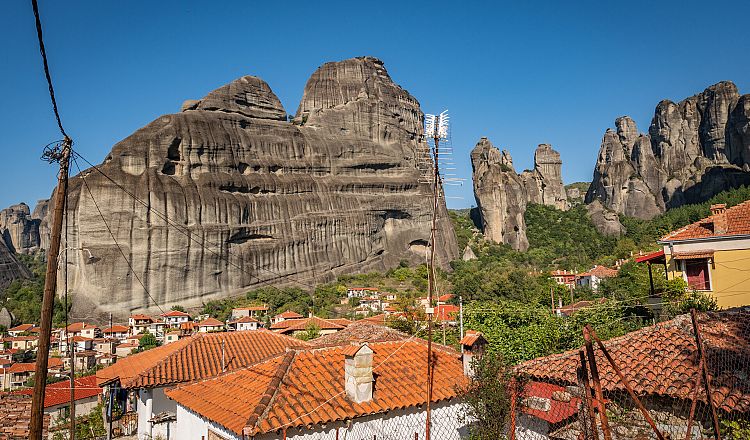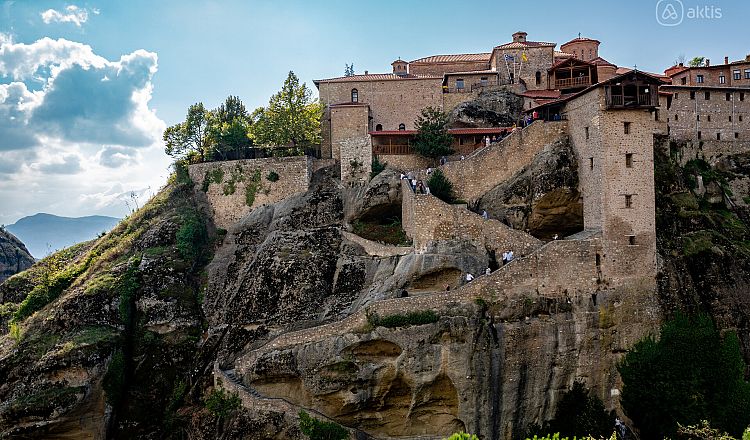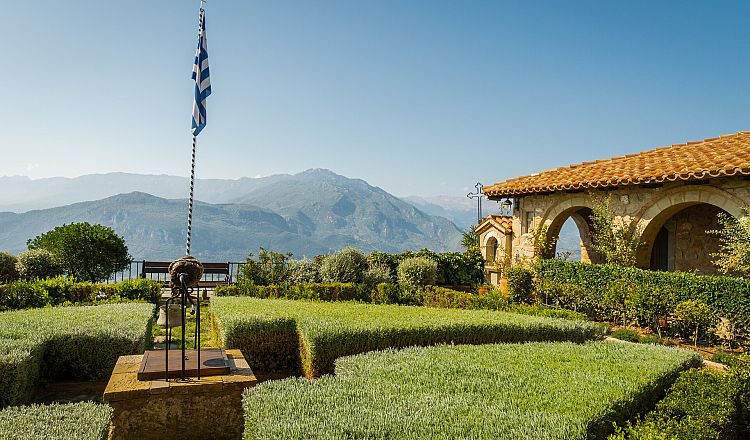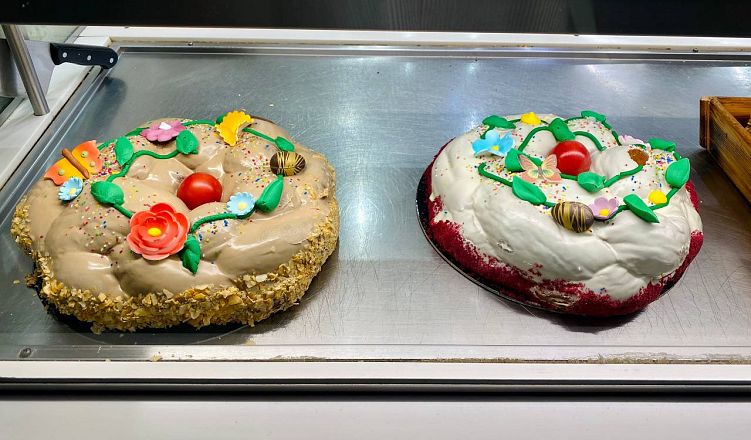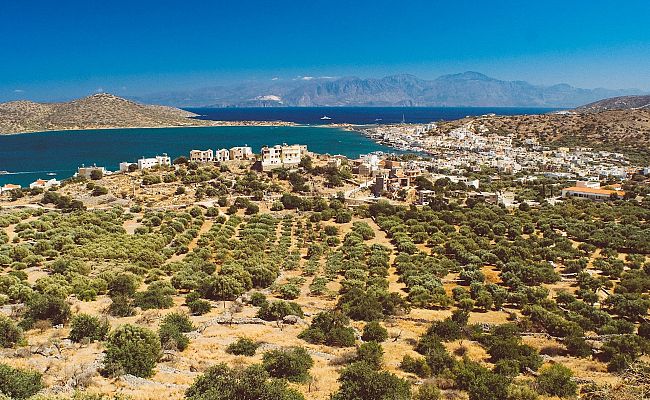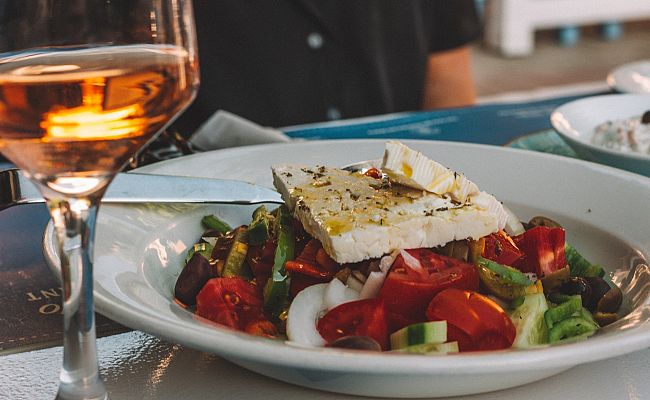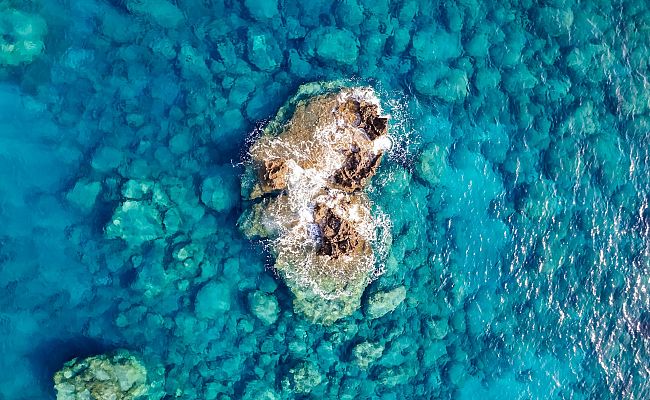Easter is the main holiday in Greece and a very special day for the Greeks. They celebrate it loudly, brightly, with fireworks and barbecue smoke. Check out the best Easter destinations in Greece.
Corfu - Easter with orchestra and breaking of pots
Corfu hosts a truly unique Easter celebration, featuring orchestral performances and the thrilling tradition of pot-breaking. Known as the Easter capital of Greece, this small Ionian island attracts both locals and tourists seeking to immerse themselves in its festive atmosphere. Life on the island comes to a halt for a couple of weeks as everyone takes to the streets, upholding traditions and attending churches.
Preparations for Easter on Corfu kick off a week prior to the holiday, starting with a religious procession on Palm Sunday. This procession, originating in the 17th century to commemorate the island's deliverance from a plague epidemic, includes all 18 Corfu Philharmonic Halls, creating a solemn and remarkable spectacle.
The highlight of Corfu's Easter, drawing thousands of spectators, occurs on Holy Saturday. At around 11 o'clock in the morning, locals begin the tradition of throwing red clay pots from windows and balconies. Whether big or small, empty or filled with water to amplify the noise, this boisterous tradition fills the squares and streets with eager onlookers.
As Easter night descends, the entire island erupts into celebration with the ringing of church bells, rhythmic drumbeats, and vibrant fireworks, marking the culmination of this unforgettable holiday experience on Corfu.
Patmos - Greek Easter on the island of Revelation
The island of Patmos holds a special place for Easter celebrations. It's believed that John the Theologian lived here, converting many locals to Christianity. Additionally, it's where he wrote the Book of Revelation - the final book of the New Testament. The main religious landmark associated with him is the Monastery of Saint John the Theologian, resembling a medieval fortress, overlooking the capital of Patmos.
During Holy Week, an ancient tradition dating back to the 4th century comes to life here. Specifically, the Niptir ceremony on Maundy Thursday, where the abbot of the Monastery of Saint John symbolically washes the feet of 12 monks, representing Christ's disciples during the Last Supper.
On Easter Sunday, the entire island gathers at the square of the town of Skala. Tables are set for guests and locals, offering wine and organizing shows with traditional dances.
Crete - a mixture of religious and culinary traditions
Another remarkable destination for Easter weekends is the island of Crete. As Easter falls during the warm season, religious tourism and immersing oneself in local traditions can be combined with beach relaxation. We've previously shared tips for traveling to Crete in May in one of our previous articles.
On Good Friday, mourning processions with flower-covered epitaphs take place throughout Crete, similar to other parts of Greece. Local residents, especially in small villages outside Heraklion and Chania, open their doors and set up tables with dried fruits, olives, and oranges for procession participants. On Saturday, children and adults prepare an effigy of Judas to burn on a bonfire, and festive fireworks illuminate the sky after midnight.
Easter on Crete pays homage not only to religious but also culinary traditions. Therefore, be sure to try the sweet bread tsoureki, grilled lamb, and Cretan pastries kalitsounia.
Thessaloniki - Easter in Greece in full scale
As Greece's second-largest city, Thessaloniki stands as one of the nation's pivotal religious hubs. With its rich history, unique shrines, and ancient temples, it emerges as an exceptional Easter destination.
The focal Easter services unfold at the Basilica of St. Demetrius and the Church of Hagia Sophia in the city center. Come Good Friday, epitaphs processions emerge from every church in Thessaloniki, accompanied by throngs of people bearing lit candles, creating an awe-inspiring atmosphere. As Easter midnight approaches, bells toll across the city, rousing everyone from sleep as they gather for services, exchange joyful greetings, and illuminate the skies with fireworks.
On Easter Sunday, venture into the villages surrounding Thessaloniki for an authentic Greek experience. Streets come alive with tables adorned with traditional fare, accompanied by songs, dances, grilled lamb, and the melodies of traditional music. Consider visiting the stone village of Afitos or the coastal village of Chaniotis in Halkidiki, where historical architecture, natural beauty, and serene beaches await your exploration.
Meteora - Easter in Monasteries on the Rocks
For a deeply spiritual, somewhat ascetic, yet profoundly authentic Easter encounter, Meteora beckons. This ancient complex of monasteries, perched atop breathtaking rock formations, reveres all aspects of religious tradition.
During Maundy Thursday, the Varlaam Monastery resonates with the solemn reading of the 12 Gospels, recounting Christ's journey to Golgotha.
What distinguishes the Good Friday epitaphs here is their simplicity compared to the lavish floral displays found elsewhere in Greece. This reflects the philosophical tenets of monasticism, emphasizing modesty and asceticism. Yet, the atmosphere of devotion exudes an unmistakably reverent and serene aura.
On Easter Sunday and the ensuing days, journey to the town of Kalambaka nestled at the base of Meteora. Throughout Easter week, the air is infused with the aroma of spit-roasted lamb, while wine flows freely, and paspaliares – corn flour pies baked in clay pots – grace the tables of revelers.
Useful tips for Easter in Greece
No matter where you find yourself celebrating Easter in Greece, you'll immerse yourself in tradition, music, and a gastronomic extravaganza. Here are a few handy phrases and culinary highlights to enhance your experience:
- "Hristos Anesti!" - "Christ is risen!"
- "Aliphos Anesti!" - “Truly He is Risen”
- "Kalo Pasha!" - wish you a good Easter
Greek Easter Delicacies
- Roasted lamb or goat: A ubiquitous sight throughout Greece, roasted on a spit to symbolize the sacrificial death of Christ on the cross ("Jesus, Lamb of God"). This dish takes center stage during Greek Easter celebrations, showcasing the Greeks' fervent love for meat. However, beware of overindulging, as reports of hospitalized revelers from excessive lamb consumption often surface in the days following the festivities.
- Magiritsa: A uniquely traditional thick soup made from lamb offal, including intestines, heart, and liver. Despite its unconventional ingredients, it's considered a staple of the Easter menu.
- Koulourakia: These traditional Greek Easter cookies trace their origins back to the Bronze Age Minoan civilization. Made with butter, they pair perfectly with a cup of Greek coffee and are typically enjoyed after the Holy Saturday service.
- Red eggs: A customary element adorning the Easter table in Greece, often sold pre-colored in supermarkets.
- Tsoureki: A sweet holiday bread synonymous with Easter in Greece, akin to Easter cakes. Infused with orange zest and sometimes coated in chocolate, tsoureki is traditionally adorned with a red boiled egg nestled in its center.
- Avgolemono: An intriguing Greek soup, its name revealing its key ingredients - lemon and egg. Often featuring onions and occasionally chicken or orzo pasta, this soup offers a distinctive and authentically traditional flavor profile.
With these phrases and culinary insights, you're well-equipped to savor the rich cultural tapestry and delectable cuisine of Greek Easter celebrations.
